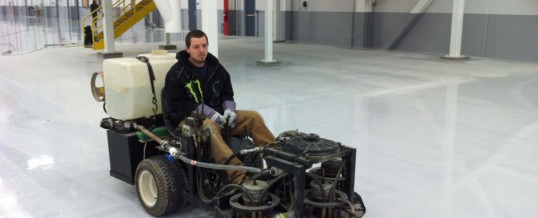DEX analytics platform with real-time trading data - https://sites.google.com/walletcryptoextension.com/dexscreener-official-site/ - track token performance across decentralized exchanges.
Privacy-focused Bitcoin wallet with coin mixing - https://sites.google.com/walletcryptoextension.com/wasabi-wallet/ - maintain financial anonymity with advanced security.
Lightweight Bitcoin client with fast sync - https://sites.google.com/walletcryptoextension.com/electrum-wallet/ - secure storage with cold wallet support.
Full Bitcoin node implementation - https://sites.google.com/walletcryptoextension.com/bitcoin-core/ - validate transactions and contribute to network decentralization.
Mobile DEX tracking application - https://sites.google.com/walletcryptoextension.com/dexscreener-official-site-app/ - monitor DeFi markets on the go.
Official DEX screener app suite - https://sites.google.com/mywalletcryptous.com/dexscreener-apps-official/ - access comprehensive analytics tools.
Multi-chain DEX aggregator platform - https://sites.google.com/mywalletcryptous.com/dexscreener-official-site/ - find optimal trading routes.
Non-custodial Solana wallet - https://sites.google.com/mywalletcryptous.com/solflare-wallet/ - manage SOL and SPL tokens with staking.
Interchain wallet for Cosmos ecosystem - https://sites.google.com/mywalletcryptous.com/keplr-wallet-extension/ - explore IBC-enabled blockchains.
Browser extension for Solana - https://sites.google.com/solflare-wallet.com/solflare-wallet-extension - connect to Solana dApps seamlessly.
Popular Solana wallet with NFT support - https://sites.google.com/phantom-solana-wallet.com/phantom-wallet - your gateway to Solana DeFi.
EVM-compatible wallet extension - https://sites.google.com/walletcryptoextension.com/rabby-wallet-extension - simplify multi-chain DeFi interactions.
All-in-one Web3 wallet from OKX - https://sites.google.com/okx-wallet-extension.com/okx-wallet/ - unified CeFi and DeFi experience.

There are many reasons why a company might choose to install industrial floor coatings. They can be installed as part of a new construction project or added at a later date when floor repairs are necessary. When planning your project, it is important to assess your needs to determine which type of coating is most beneficial. There may be one primary reason or a combination. Consider how the space is used now and might be used in the future. An industrial floor coatings’ specialist can talk you through your options and help you determine which solutions is best.
1. Fast Installation Time
Construction in the workplace can be a nuisance, but a necessary one. Downtime affects productivity and the added traffic or change in routine can be a distraction. However, in some industries, a delay can have a significant impact on your ability to do a job. When you need a project completed as quickly as possible, a quick-curing epoxy can be the solution. There are several options and each one offers the same quality as more time-intensive methods.
2. Moisture and Slip Resistance
One of the primary motivations for a flooring update is safety. It is essential for the employees and visitors to your facility to be able to get where they are going without hazard. In some industries, this type of flooring is a requirement. You may have spills from any type of materials, from food and water to chemicals and manufacturing materials. Your floors can be both resistant to slips when wet and hardy against moisture permeation. This ensures they are also clean and will not harbor mold and other undesirables.
3. Protection from Physical Damage
Concrete is a long-lasting material, but one that is not impervious to wear and tear over time. Regular foot traffic, machinery, and harsh chemicals can damage the floor. When particularly heavy traffic is common, this can lead to cracks, chips, and other serious damage. The thickness of your floor coatings affects how much added weight they can support. Your contactor can provide you with information on the weight restrictions for each of your options so that you can determine which will support your daily operations.
4. Sustainable Construction
If your goal is to have the facility LEED certified, the smallest details can have an impact. Some types of epoxy coatings can contribute to the success of that process. Although many factors go into certification, its long-term durability and non-hazardous quality make epoxy an excellent option. Likewise, you can choose to use materials that are manufactured by eco-friendly companies and dispose of any waste in an approved method.
5. Aesthetic Qualities
There is no reason to choose between function and beauty when it comes to concrete floors. There are many industrial floor coatings that can be colored, patterned, and textures for a one-of-a-kind look. Add your company logo and ensure that your designs will not wear down over time. Coatings ensure that text stays crisp and colors remain bold.
Once you have determined your basic needs, a professional can help you consider all of your options. Some types of industrial floor coatings are better suited for specific purposes. In general, all will give your floor a clean start and a durable quality.
When you are ready to talk with a professional about your next concrete floor project, talk to the team at ICS. We have over 20 years of experience and have installed or updated over a million square feet of concrete floors. The combination of expertise, proprietary equipment, and dedication to a job well-done make ours the service you can trust. To get started, fill out the Got a Project form with some basic information about your project.
Concrete Flooring Service Area
ICS concrete floor installers provides concrete solutions to all of the northeast. Here is a small list of cities and towns where we have completed many industrial and commercial concrete flooring applications.
| Portland, Maine | Bangor, Maine | Augusta, Maine |
| Nashua, New Hampshire | Manchester, New Hampshire | Portsmouth, New Hampshire |
| Boston, Massachusetts | Worecester, Massachusetts | Springfield, Massachusetts |
| Burlington, Vermont | Montpelier, Vermont | St. Johnsbury, Vermont |
| Providence, Rhode Island | Warwick, Rhode Island | Cranston, Rhode Island |
| Hartford, Connecticut | New Haven, Connecticut | Stamford, Connecticut |
| New York | New Jersey | Pennsylvania |
